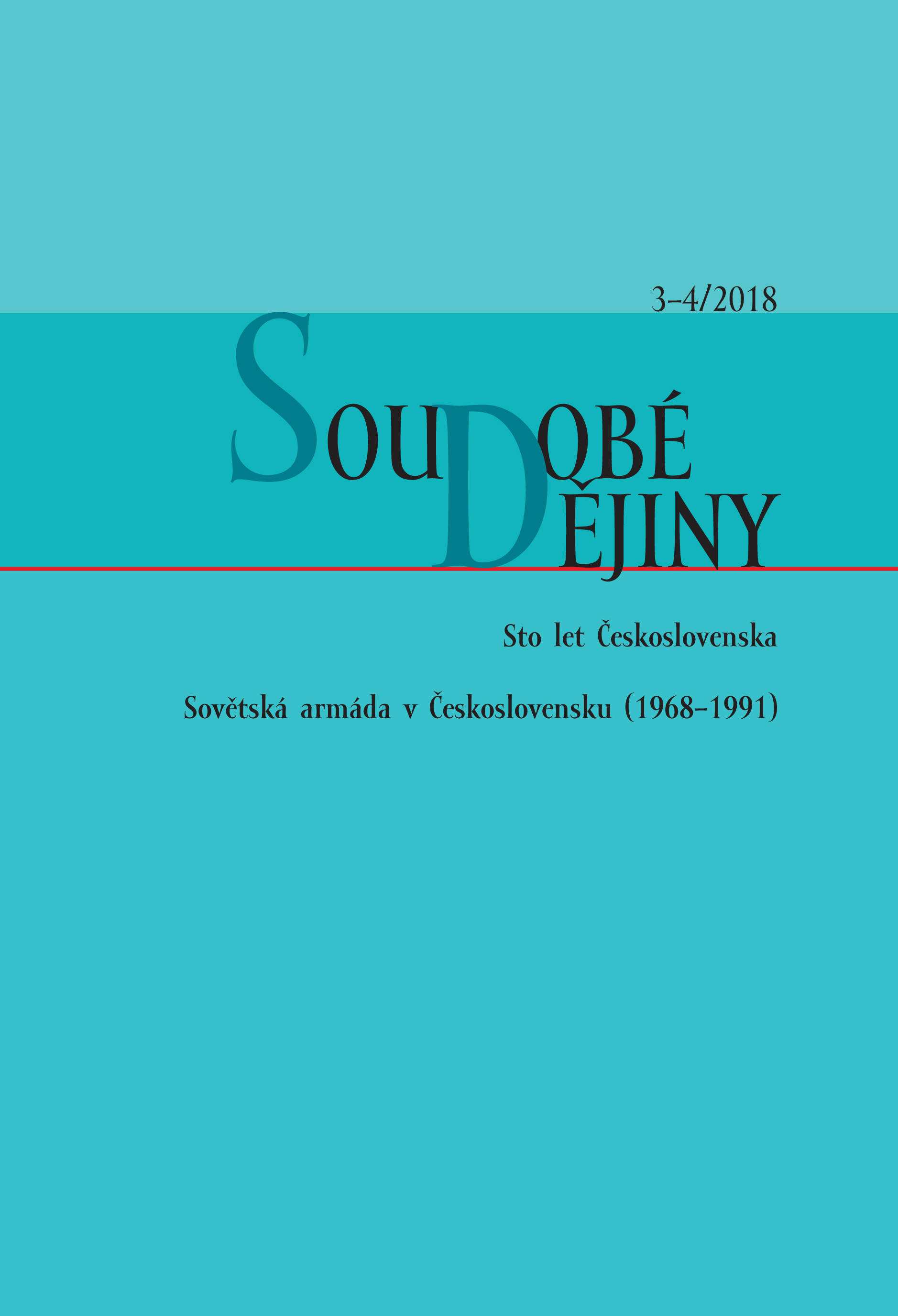Alexander Dubček – československý politik
Alexander Dubček – a Czechoslovak politician
Author(s): Oldřich TůmaSubject(s): History, Recent History (1900 till today), History of Communism
Published by: AV ČR - Akademie věd České republiky - Ústav pro soudobé dějiny
Keywords: Alexander Dubček;Czechoslovakia;historical images;public opinion
Summary/Abstract: The author describes the evolution of views of the Czech society on Alexander Dubček (1921–1992) between 1968 and now in connection with political events in which Dubček himself participated. He sees the principal difference between the Czechs and the Slovaks in that the former do not perceive Dubček as a Slovak politician, but rather as a Czechoslovak one, in a broader, “common” sense of the word. In Tůma’s opinion, their view on Dubček evolved from initial, rather polite interest in the beginning of 1968, when Dubček became the First Secretary of the Central Committee of the Communist Party of Czechoslovakia, to growing sympathies in the spring up to admiration and almost adoration the levels of which were, in the tensest moments of August 1968, just as high as those in Slovakia; then to increasing embarrassment mixed with pity, and finally to a rather critical and reserved attitude. These different views were previously replacing each other, but now, as the time goes by, they exist alongside each other. At the time when Dubček was banned from public life, during the so-called normalization, the attitude of the society toward him was losing its realistic dimension; while he was still popular among people, the popularity was associated with Dubček as a symbol of “socialism with a human face”, lost hopes, and better times. At the same time, critical reflections of Dubček’s policy during the Prague Spring appeared among Czech dissidents. Since 1989, the Prague Spring and Dubček became a part of the political fight for the form of the ongoing social and economic transformation, which sometimes brought sharp attacks against him. As a rule, Czech historians are more critical toward Dubček than their Slovak counterparts, although there are staunch supporters of Dubček among them as well. The author concludes that today’s Czech society perceives Dubček without any special emotions, with a cool reservation, but also in a differentiated manner. Dubček is perceived as a part of our own history, but perhaps not as a historical figure we would like to be proud of.
Journal: Soudobé Dějiny
- Issue Year: XXV/2018
- Issue No: 3-4
- Page Range: 391-399
- Page Count: 9
- Language: Czech

